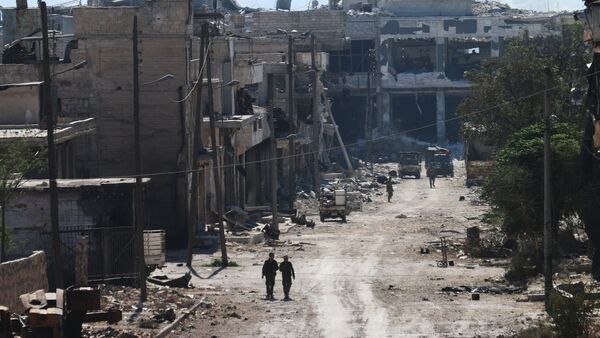Moscow said that the United States is not implementing its obligations from the agreement, especially on separating so-called moderate rebels from terrorists on the ground.
Moreover, on Saturday, warplanes of a US-led coalition attacked positions of the Syrian Army near Deir ez-Zor, killing 62 personnel.
"Perhaps, the US wants to work with Russia for a ceasefire in Syria. But the agreement is not being implemented on the ground. It proves that there is no consensus in Washington over the situation," Russian analyst and former diplomat Vyacheslav Matuzov told Sputnik.
As a result, the war hawks in Washington can stage such provocations, like the recent bombing attack in Deir ez-Zor, he said.
"This airstrike is a blatant provocation aimed at undermining the political agreements," Matuzov pointed out.
He added that terrorists fighting against the Syrian Army are also benefiting from the lack of stability in the US' foreign policy.
According to the expert, Washington does not want any binding agreements that could restrict American actions in the future.
From the beginning, Russia has been insisting on making the agreement as transparent and clear as possible. In turn, the US has been against disclosing details of the agreement.
"In order to implement the agreement, a consensus in Washington is crucial. The US should decide how far it is ready to go at the current stage of the Syrian settlement. And only then Moscow, Washington and Damascus could settle other differences," Migranyan said.





